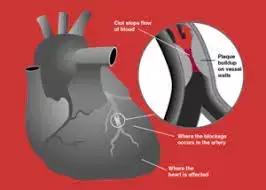- Home
- Medical news & Guidelines
- Anesthesiology
- Cardiology and CTVS
- Critical Care
- Dentistry
- Dermatology
- Diabetes and Endocrinology
- ENT
- Gastroenterology
- Medicine
- Nephrology
- Neurology
- Obstretics-Gynaecology
- Oncology
- Ophthalmology
- Orthopaedics
- Pediatrics-Neonatology
- Psychiatry
- Pulmonology
- Radiology
- Surgery
- Urology
- Laboratory Medicine
- Diet
- Nursing
- Paramedical
- Physiotherapy
- Health news
- Fact Check
- Bone Health Fact Check
- Brain Health Fact Check
- Cancer Related Fact Check
- Child Care Fact Check
- Dental and oral health fact check
- Diabetes and metabolic health fact check
- Diet and Nutrition Fact Check
- Eye and ENT Care Fact Check
- Fitness fact check
- Gut health fact check
- Heart health fact check
- Kidney health fact check
- Medical education fact check
- Men's health fact check
- Respiratory fact check
- Skin and hair care fact check
- Vaccine and Immunization fact check
- Women's health fact check
- AYUSH
- State News
- Andaman and Nicobar Islands
- Andhra Pradesh
- Arunachal Pradesh
- Assam
- Bihar
- Chandigarh
- Chattisgarh
- Dadra and Nagar Haveli
- Daman and Diu
- Delhi
- Goa
- Gujarat
- Haryana
- Himachal Pradesh
- Jammu & Kashmir
- Jharkhand
- Karnataka
- Kerala
- Ladakh
- Lakshadweep
- Madhya Pradesh
- Maharashtra
- Manipur
- Meghalaya
- Mizoram
- Nagaland
- Odisha
- Puducherry
- Punjab
- Rajasthan
- Sikkim
- Tamil Nadu
- Telangana
- Tripura
- Uttar Pradesh
- Uttrakhand
- West Bengal
- Medical Education
- Industry
Prasugrel dose de-escalation reduces risk of minor bleeding events at 1 year in ACS patients

Prasugrel dose de-escalation compared with conventional therapy may reduce the risk of minor bleeding events at 1 year, according to a recent study published in the JAMA Cardiology.
De-escalation of dual-antiplatelet therapy through dose reduction of prasugrel improved net adverse clinical events after acute coronary syndrome (ACS), mainly through the reduction of bleeding without an increase in ischemic outcomes. However, whether such benefits are similarly observed in those receiving complex procedures is unknown.
A study was conducted to investigate whether the benefits of prasugrel dose de-escalation therapy are maintained in the complex percutaneous coronary intervention (PCI) subgroup.
This was a post hoc analysis of the HOST-REDUCE-POLYTECH-ACS trial, a randomized, open-label, adjudicator-blinded, multicenter trial performed at 35 hospitals in South Korea. Study participants included patients with ACS who were receiving PCI. Data were collected from September 30, 2014, to December 18, 2015, and analyzed from September 17, 2020, to June 15, 2021.
Patients were randomized to a prasugrel dose de-escalation (5 mg daily) at 1 month post-PCI group or a conventional (10 mg daily) group. Complex PCI was defined as having at least 1 of the following features: 3 or more stents implanted, 3 or more lesions treated, bifurcation PCI, total stent length 60 mm or larger, left main PCI, or heavy calcification.
The main analysis end points were MACE (major adverse cardiac event, a composite of cardiovascular death, nonfatal myocardial infarction, stent thrombosis, and repeat revascularization) at 1 year for ischemic outcomes, and BARC (Bleeding Academic Research Consortium) class 2 or higher bleeding events at 1 year for bleeding outcomes.
Results:
Of 2271 patients (mean [SD] age, 58.9 [9.0] years; 2024 [89%] male patients) for whom full procedural data were available, 705 patients received complex PCI, and 1566 patients received noncomplex PCI. Complex PCI was associated with higher rates of ischemic outcomes but not with bleeding outcomes. Prasugrel dose de-escalation did not increase the risk of MACE (hazard ratio [HR], 0.88; 95% CI, 0.47-1.66; P = .70 in complex PCI; HR, 0.81; 95% CI, 0.45-1.46; P = .48 in noncomplex PCI; P for interaction = .84) but decreased BARC class 2 or higher bleeding events (HR, 0.25; 95% CI, 0.10-0.61; P = .002 in complex PCI; HR, 0.62; 95% CI, 0.38-1.00; P = .05 in noncomplex PCI; P for interaction = .08), albeit with wide 95% CIs.
Thus, in this post hoc analysis of patients with ACS, prasugrel dose de-escalation compared with conventional therapy was not associated with an increased risk of ischemic outcomes but may reduce the risk of minor bleeding events at 1 year, irrespective of PCI complexity.
Reference:
Prasugrel Dose De-escalation Therapy After Complex Percutaneous Coronary Intervention in Patients With Acute Coronary Syndrome: A Post Hoc Analysis From the HOST-REDUCE-POLYTECH-ACS Trial by Doyeon Hwang, et al published in the JAMA.
https://jamanetwork.com/journals/jamacardiology/fullarticle/2789896?guestAccessKey=50dc3e06-af55-4061-bf2f-2137105cc529&utm_source=silverchair&utm_medium=email&utm_campaign=article_alert-jamacardiology&utm_content=olf&utm_term=030922
Keywords:
Doyeon Hwang, Young-Hyo Lim, Kyung Woo Park, Kook Jin Chun, Jung-Kyu Han, Han-Mo Yang, Hyun-Jae Kang, Bon-Kwon Koo, Jeehoon Kang, Yun-Kyeong Cho, Soon Jun Hong, MD5; Sanghyun Kim, Sang-Ho Jo, Yong Hoon Kim, Weon Kim, MD9; Sung Yun Lee, Young Dae Kim, Seok Kyu Oh, Jung-Hee Lee, Hyo-Soo Kim, Prasugrel Dose for Acute Coronary Syndrome, Acute Coronary Syndrome treatment, Prasugrel Dose De-escalation Therapy, Complex Percutaneous Coronary Intervention, JAMA Cardiol.
Dr. Shravani Dali has completed her BDS from Pravara institute of medical sciences, loni. Following which she extensively worked in the healthcare sector for 2+ years. She has been actively involved in writing blogs in field of health and wellness. Currently she is pursuing her Masters of public health-health administration from Tata institute of social sciences. She can be contacted at editorial@medicaldialogues.in.
Dr Kamal Kant Kohli-MBBS, DTCD- a chest specialist with more than 30 years of practice and a flair for writing clinical articles, Dr Kamal Kant Kohli joined Medical Dialogues as a Chief Editor of Medical News. Besides writing articles, as an editor, he proofreads and verifies all the medical content published on Medical Dialogues including those coming from journals, studies,medical conferences,guidelines etc. Email: drkohli@medicaldialogues.in. Contact no. 011-43720751


